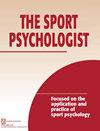压力训练的有效传递:运动员和运动心理学家的观点
IF 1.2
4区 心理学
Q3 HOSPITALITY, LEISURE, SPORT & TOURISM
引用次数: 4
摘要
压力训练(PT)在训练中策略性地增加压力,使运动员在压力下表现。虽然研究已经研究了如何在训练中创造压力,但PT的有效性可能不仅仅取决于创造压力。从业者提供的运动心理干预可以调节其有效性,因此本研究从运动心理学家和运动员的角度探讨了在应用环境中有效的运动心理干预的特征。8名国际级运动员和8名运动心理学家参加了半结构化的定性访谈,他们分别描述了他们参与或实施PT的经历。专题分析产生了与有效交付有关的四个主题:(a)与运动员和教练合作:“与”,而不是“到”;(b)纳入培训;(c)前期透明度;(d)促进培训前后的学习。这些主题为在应用环境中规划、实施和跟进培训课程提供指导。讨论的最佳实践可以提高运动员对PT的接受度。本文章由计算机程序翻译,如有差异,请以英文原文为准。
Effective Delivery of Pressure Training: Perspectives of Athletes and Sport Psychologists
Pressure training (PT) strategically increases pressure in training to prepare athletes to perform under pressure. Although research has studied how to create pressure during training, PT’s effectiveness may depend on more than creating pressure. A practitioner’s delivery of sport psychology interventions can moderate their effectiveness, so the current study explored perspectives of sport psychologists and athletes on the characteristics of effective PT delivery in applied settings. Eight international-level athletes and eight sport psychologists participated in semistructured qualitative interviews in which they described their experience participating in or conducting PT, respectively. Thematic analysis produced four themes relating to effective delivery: (a) collaboration with athletes and coaches: “with,” not “to”; (b) integration into training; (c) upfront transparency; and (d) promoting learning before and after PT. The themes provide guidance for planning, conducting, and following up on PT sessions in applied settings. The best practices discussed could increase athletes’ receptiveness to PT.
求助全文
通过发布文献求助,成功后即可免费获取论文全文。
去求助
来源期刊

Sport Psychologist
医学-心理学
CiteScore
2.80
自引率
6.20%
发文量
18
审稿时长
>12 weeks
期刊介绍:
TSP is a scholarly refereed journal designed as a forum to stimulate thought and disseminate knowledge that focuses on the application and practice of sport psychology. A special emphasis of the journal is on the delivery of psychological services to practitioners such as athletes and coaches. TSP is international in scope and is receptive to diverse methodologies. TSP is published for sport psychology specialists who engage in research, teaching, and/or intervention in a variety of contexts including academic, public, and private settings. The journal is also intended for practitioners such as coaches who have training and interest in sport psychology.
 求助内容:
求助内容: 应助结果提醒方式:
应助结果提醒方式:


